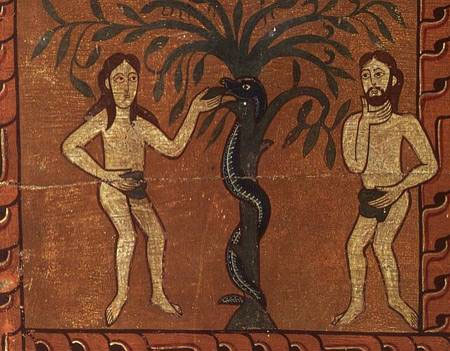Galatians – 1
Paul’s Genesis
It’s time to put another epistle under the matrix-scope!
TRANSCENDENCE Paul’s Authority (Galatians 1:1-10)
not from men (Land)
nor through man, (World)
The first stanza is fairly simple. There does seem to be a “three-decker” Tabernacle structure at Hierarchy, which is unusual. Paul seems to be saying that his “official robe,” his delegated authority, has nothing to do with Judaism. It is not from the Temple, nor from the Circumcision.
Now, this initial cycle should lay down the pattern for what follows. We’ll see!
HIERARCHY
Just as the first stanza as a whole concerned the Transcendence of Paul’s authority, so the second has to do with the Christians in Galatia as a New Covenant hierarchy. All the terms which once applied to Israel are now being applied to the Church. If we are not aware of the structure of Paul’s text, we are going to miss much of what he is implying.
Notice the symmetry of the Father at Passover and Atonement. These two feasts have to do with covering sin. It is interesting that the “will” of the Father is mentioned at line 6, which is usually where baptism turns up.
“…who were born, not of blood nor of the will of the flesh nor of the will of man, but of God.” John 1:13
Saints are those not born by the will of man (nor the authority of man) but by the will of God, which implies to me that circumcision was an indirect authority, via the flesh, but that baptism is a direct authority by the Spirit. It is thus not to be tied to parenting or any other tribal significance.
ETHICS 1
Now we move from Hierarchy to the Ethics (1) section of this first cycle.
Wow. Here is where the Covenantal “shape” of the text shows how cutting these words actually are. Not only this, but it makes very clear whom Paul has in mind: Judaizers. The “exodus” here is ironic. It is the same sort of exodus made by the family of Elimelech in the book of Ruth. This ended with the death of the father and the sons. “A different gospel” appears at Testing, which ties in with Jesus’ naming the Pharisees as a brood of serpents. As the devil was the “head,” so the Jews who rejected the Spirit at Pentecost became a false Covenantal “body,” just as we see in the book of Numbers. Jesus conquered the head and His firstfruits church would conquer these fiery snakes (a false spirit) who were troubling them. The “trouble” appears at line 6, which has to do with ownership and cleansing of the Land. Who were the true mediators now between heaven and earth? This was a battle between Jacob (Christ) and Esau (Herod) for the Covenant Succession. Finally, notice the statement of truth repeated at Deuteronomy.
ETHICS 2
Ethics 1 (Ascension) concerns the giving of the Law (as above). Ethics 2 (Testing) is about the opening of the Law. It has to do with Pentecost, exposure to the rule of God, the “sun, moon and stars,” or their counterfeits. Just as the centre of stanza 3 was about serpents on earth, so this central stanza is about the serpent from heaven, and the curse of the Covenant.
Not only is this a replay of the satanic “false witness” in Eden, this legal testimony before God to the Galatians churches is Covenant-shaped.
ETHICS 3
Just like Moses, Paul is warning the “new generation” before they conquer the Land for Christ and tear down Jerusalem’s walls.
Being Covenant-shaped, not only is this stanza a replay of Israel’s journey from Egypt to Canaan, it also works its way through the Ten Words. At the centre are murder and adultery (knife and fire), the false sacrifices of a now demonic Judaism. Line 2 would thus be Paul’s call for the Galatians to “yoke” themselves to his testimony, the testimony of Jesus, rather than the “Baals” of the flesh-cutting Jewish rulers. In all of this exhortation and warning, the book of Numbers is just below the skin!
Even better, the fact that the “Deuteronomy” of this first cycle (which aligns with the Theft and False Witness commands) is a repeated witness makes Paul’s message even more pronounced.
OATH/SANCTIONS
Although this is not the end of the chapter, it seems to be the end of the first cycle. Paul ends it with his office of “bondservant” to set the mood for his discussion of bondage and freedom. At this point, the corresponding feast is “Atonement.” Paul is the “Isaac” bound that the future of Israel might be loosed. As is sometimes the case, the writer leaves the seventh cycle out to make his point: those who disobey the Gospel will not enter in God’s rest.
Conclusion
Those who take no notice of the Covenant-literary shape of Galatians will miss the Old Testament allusions, especially the idea that Judaism post-Pentecost was now the lie of the serpent, a river of false living water spewing from its mouth and swallowed by the Land (Revelation 12). The gospel according to the Pharisees promised “godhood” to Adam (Christ) and then to Eve (the Church), so the authenticity of Paul’s authority from Christ to His bride was of paramount importance. The elect would not be deceived. Not this time…
____________________________________
[1] For more on “this present evil age,” see The Circumcision of Satan.


























